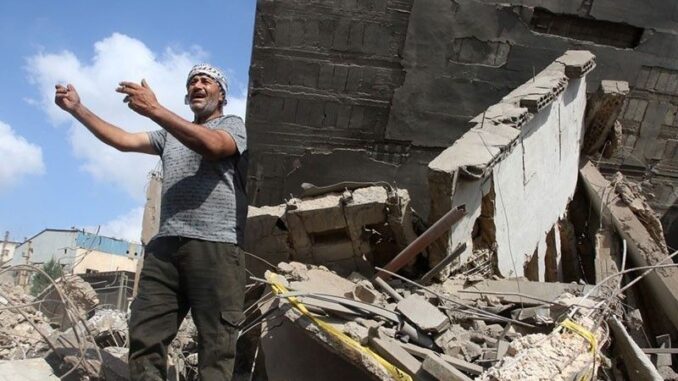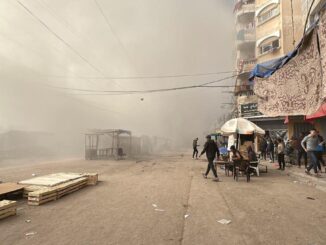
MANILA, Philippines — The Philippines has prepared an evacuation plan for thousands of Filipinos in Lebanon in case Israel’s targeted airstrikes on Hezbollah strongholds escalate into a full-scale war.
The Philippine Embassy in Lebanon is “operating as if Alert Level 4 is already or about to be in place” and has mobilized all its resources to prepare for possible “sudden and wide-scale conflict,” Foreign Affairs Undersecretary Eduardo de Vega said in a press briefing on Friday, September 27.
“So far [mass repatriation] is not going to happen yet, partly because the Filipino community is very hesitant to leave,” De Vega said.
“This is a sign that they still feel relatively safe in Lebanon,” he added.
The DFA has had Alert Level 3 hoisted upon Lebanon since last year, which calls for the voluntary repatriation of Filipinos.
It will only raise Alert Level 4, the highest in the tier system, if a “full war situation” breaks out in the Middle Eastern country.
Under this alert level, the Philippines will impose a mandatory repatriation of Filipinos and a total deployment ban.
RELATED: DFA calls on Filipinos to leave Lebanon anew after deadly device explosions
Up to 11,000 Filipinos are estimated to be in Lebanon, most of whom reside in the capital of Beirut and nearby areas.
A smaller number of Filipinos — around 196 or less — live in southern Lebanon, where Israel’s military trades the most attacks against Hezbollah fighters, according to Philippine Ambassador in Lebanon Raymond Balatbat.
The Philippine embassy has advised Filipinos in Lebanon, most of whom are household workers, to be “on alert” and “just be ready in the event of a mass evacuation,” Balatbat said.
What to prepare. The embassy’s preparations involve advising Filipinos to ready an emergency bag containing essential items, such as their passport, iqama (residence permit), extra clothes, potable water and food that can last for two to three days.
“These are things we’ve been inculcating in them to be alert and to be ready in the event of a mass repatriation,” he said.
The Philippine ambassador said they are also in contact with Lebanese immigration authorities to facilitate the repatriation of migrant Filipino workers, especially those who are undocumented.
“We’re ready if ever the situation calls for it. We are ready to implement Alert Level 4,” he said.
However, both De Vega and Balatbat said several Filipinos are still deeply hesitant to leave and end their employment, with the ambassador saying some would “rather take their chances here [Lebanon] than go home.”
Fighting limited to southern Lebanon
Robert Ferrer, DFA assistant secretary for migration affairs, said the attacks from the Israeli army are concentrated in places believed to be Hezbollah bastions: a neighborhood south of Beirut and southern Lebanon, where the Middle Eastern country shares a border with Israel.
“You don’t collate localized strikes to the whole of the country,” he said, adding that a mass repatriation event is “up to the assessment” of people on the ground.
At least 23 out of an estimated 196 Filipinos in southern Lebanon have already sought shelter in the embassy’s migrant workers center, Balatbat said. “We’re still trying to account for the others,” he added.
Meanwhile, the Philippine embassy in Tel Aviv said Filipinos in Israel remain safe and “go about their daily lives basically undisrupted.”
The Philippines’ announcement of its plans for a mass evacuation scenario comes days after the Israeli army chief told troops to prepare for a possible ground invasion of Lebanon.
On Thursday, September 26, Israeli Prime Minister Benjamin Netanyahu refused a truce proposal that the United States helped draft, according to an Agence France-Presse report.
A day before that, a ballistic missile fired by Hezbollah at Tel Aviv was intercepted by Israel’s air defense system.
Israel announced earlier this month that it was shifting its focus from the Gaza Strip, where it has been at war with Hamas since the October 7 attack, to its northern border with Lebanon.





Be the first to comment